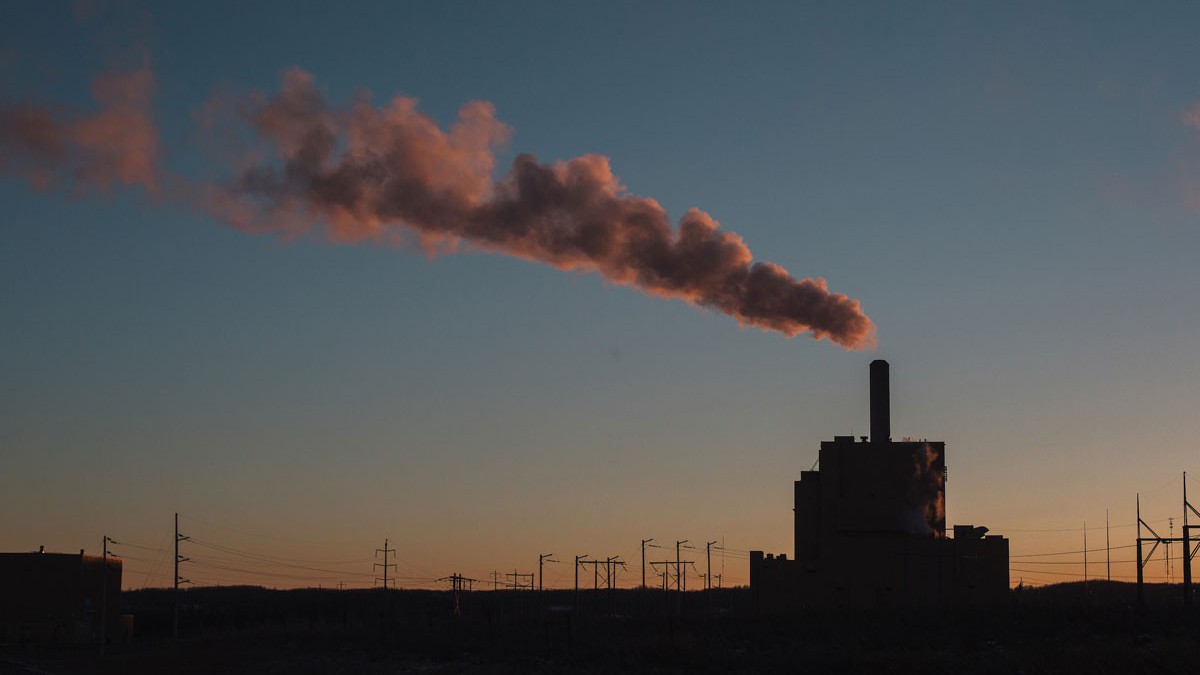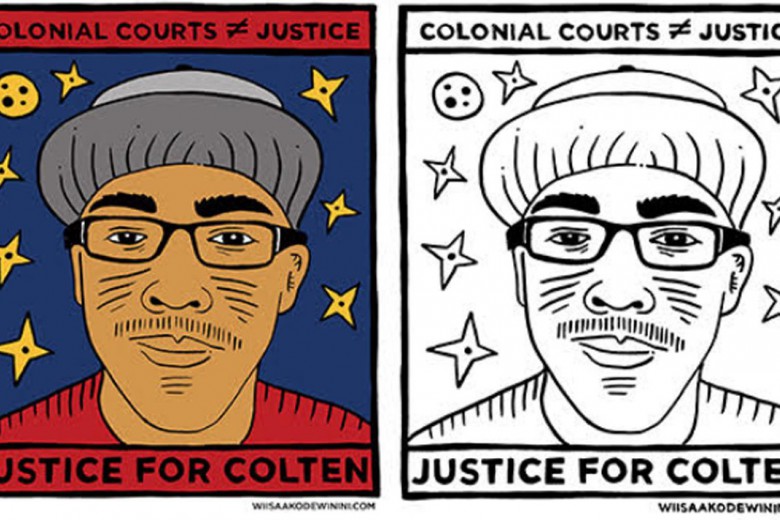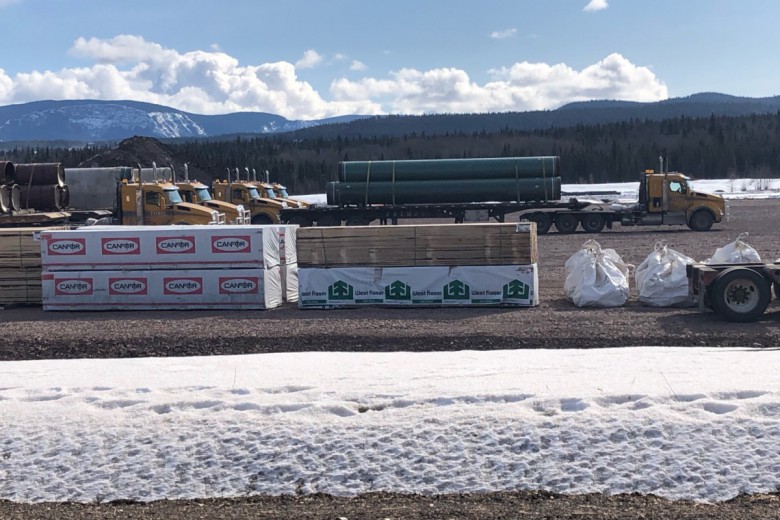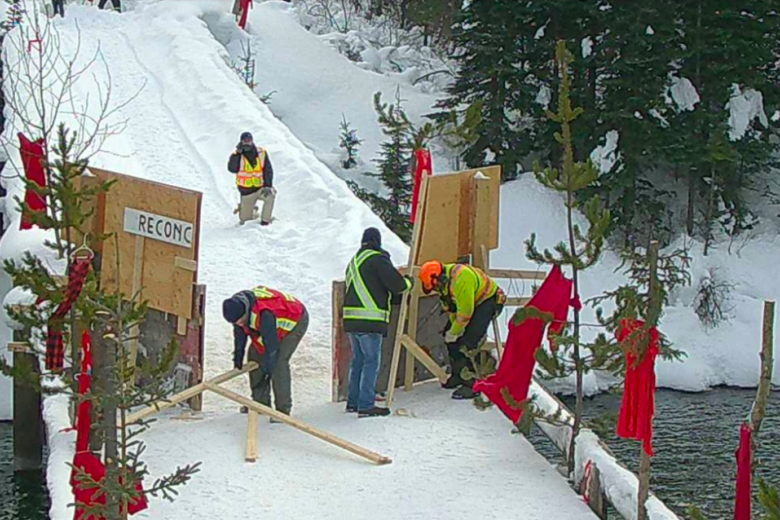As enthusiasm for a Green New Deal for Canada grows, what type of planning will bring about a just transition to a low-carbon society?
Specifically, we turn to two questions.
First, how can plans for a just transition, from their very beginning, respect the principle of free, prior, and informed consent of Indigenous peoples?
Second, what kinds of policies will those who currently work in fossil fuel industries support, given that many are defensive of their industries – a tendency eagerly encouraged by fossil fuel companies?
There needs to be a radical redistribution of power and decision-making, at multiple levels.
We, as two settlers living in Treaty 4 in Regina, do not have definitive answers. What we can offer are snippets of conversations with people who think about and work on these questions on the ground, as well as some of our own insights.
In brief, we believe that corporate, for-profit planning, aided and violently enforced by the settler colonial state of Canada, will not bring about a just transition. Instead, there needs to be a radical redistribution of power and decision-making, at multiple levels.
Decolonizing relations
“Clearly, the corporate agenda is about exploiting the land for profit,” Grand Chief Stewart Phillip, president of the Union of British Columbia Indian Chiefs (UBCIC), explains in an interview. “It’s not about stewardship or conservation or setting aside land and preserving the values and habitat. It’s got nothing to do with that. It’s about ripping up the land and taking what they can in terms of commodities and then moving on to some other pristine environment and repeating the exercise.” For Phillip, the corporate agenda cannot lead the way.
As early as 1970, the UBCIC has been pushing for changes in how decisions affecting Indigenous lands are made. Take, for example, this demand from the 1971 Declaration of Indian Rights: The B.C. Indian Position Paper: “We demand immediate involvement of our people starting with the planning stages in all mining and forestry activity on Crown land in the province of British Columbia.”
Today, Phillip is working to get the United Nation Declaration on the Rights of Indigenous Peoples (UNDRIP) implemented through legislation by settler governments as a way to level long-standing power imbalances. UNDRIP includes the principle of free, prior, and informed consent, abbreviated as FPIC.
“We need a new framework that’s based on recognition of our rights and interests and land and resources across this country.”
“I think it’s abundantly clear that the old relationship just isn’t working. It’s totally counterproductive and we need a new framework that’s based on recognition of our rights and interests and land and resources across this country,” says Phillip. “If you factor in the climate crisis and everything that represents, it’s inevitable that there needs to be a strong – recognized through legislation – Indigenous voice engaged in legislation in regard to protection of the land and the waters in the face of the devastating challenges of climate change that we see everyday.”
To Phillip’s frustration, Bill C-262 – a private member’s bill brought forward to Parliament by NDP MP Romeo Saganash – which would have seen Canada commit to implementing UNDRIP in law, was thwarted by Conservative senators in spring 2019 after approval in the House of Commons. Because there is an election before the next sitting of Parliament, this means the bill is wiped from the slate, and would need to be entirely reintroduced once the next government forms.
In B.C., Phillip tells us, he expects to see the NDP government of John Horgan bring forward legislation to embrace UNDRIP in spring 2020.
Decolonizing the transition
If a Green New Deal or a just transition is to be implemented in the U.S., Canada, or elsewhere, it will entail massive economic and social changes – not just decarbonizing, but also addressing the social inequalities caused by our current carbon-based economy.
As Eriel Deranger, founder of Indigenous Climate Action, recently wrote for the Yellowhead Institute, “to be just, [the Green New Deal] cannot continue to be created without our full participation or free, prior and informed consent. That means we need to be aware of these conversations and require proportional seats at the table: seats that are resourced and supported. We need to ensure we are part of leading and advocating for solutions for our own communities. If the climate justice movement is serious about justice for all, it must embody that sentiment and relinquish power, redistributing resources to build the future they call for.”
Calling for an Indigenous-led Red Deal in a Jacobin article, Nick Estes, co-founder of The Red Nation, asks, “Why is it easier for some to imagine the end of fossil fuels but not settler colonialism? To imagine green economies and carbon-free, wind turbine, solar power, and electric bullet train utopias but not the return of Indigenous lands? It’s not an either/or scenario. Both are possible – and necessary.”
“Why is it easier for some to imagine the end of fossil fuels but not settler colonialism?”
Michelle Brass, a member of the steering committee of Indigenous Climate Action, expands on these ideas. “As Indigenous Peoples, we have been envisioning [the end of settler colonialism and a healthy relationship with the land] and praying for this and living our lives working toward this through the course of our history, since settler Canadians showed up on our territories and impacted our lands and the course of our history. So I see both [the end of settler-colonialism and a healthy relationship with the land] as possible and necessary, but I don’t know that settler Canadians can see that and will do what they need to do,” Brass tells us in an interview.
“This whole question about the end of colonialism is emotional, it’s spiritual and I think there’s a lot of fear around white settler society on ‘what will happen if we relinquish our power and control? What will they do to us, what will happen to our jobs, to our livelihoods?’” she continues. “But you know what? That same concern has never been extended to Indigenous communities as the buffalo were wiped out, as our children were stolen, as we were incarcerated on the land, as we continue to suffer poverty, extreme poverty in our own homelands.”
Asked how to unite the goals of transition and ending colonialism, Brass says, “We do need to come together and work together, but what’s happening is these other issues always tend to trump, or to take precedent, over Indigenous rights. It always seems to be an afterthought.” She adds, “[It’s] an issue of power. There are people in positions of power and privilege that are making decisions that impact us, and we’re not being brought in early enough or with the respect that is required.”
Fossil fuel workers in transition
Without provincial and national leadership that presents concrete visions and economic plans for low-carbon futures, people currently working in the fossil fuel industry face extreme uncertainty about what’s ahead. Groups like the Canadian Association of Petroleum Producers and Canada Action (creator of the “I LOVE OIL SANDS” campaign), are hard at work exploiting this uncertainty and encouraging oil and gas sector employees to fight for their industry as a means of securing their futures.
How can workers, some of whom are fierce defenders of industry, be involved in and supported through a transition?
Gil McGowan was in the thick of negotiations for the transition off of coal in Alberta, from the workers’ side. Coal is very high in greenhouse gas (GHG) emissions per unit of energy – much higher than oil and gas (though some studies put fracked gas emissions in the same ballpark) – and governments in Canada and around the world are getting off of coal. McGowan is the president of the Alberta Federation of Labour and chaired the Alberta Coal Transition Taskforce, which fought on behalf of some 2,500 workers at coal plants and associated mines in Alberta after the provincial NDP government announced plans in 2015 to phase out coal.
The coal transition is a preview of what will be needed to wind down other fossil fuel and fossil fuel-intensive industries.
“We looked around the world for models to copy, and we couldn’t find models anywhere – couldn’t find any jurisdiction that had done what we were proposing to do, which was to have a just transition program that would cover multiple work sites, multiple employers, and multiple unions. There had been transition programs developed with single employers, and single employers and their unions.” In Germany, for example, where the black coal industry had been phased out (but not the brown coal industry, yet), there was only one employer and one union involved.
“That’s a lesson for other jurisdictions; make sure you have the right people dealing with the issue because [a] just transition is a labour market issue, not an environmental issue.”
When the NDP was elected in 2015 and work began on the coal phase-out, the portfolio first sat with the Alberta ministry of Environment and Parks. But according to McGowan, a just transition is properly understood as a labour issue; after all, the concept came out of the labour movement and has largely focused on supporting workers through environmental policy changes. McGowan therefore advocated that the file be moved to the labour ministry, and “once it got there, we were off to the races. I mean, we had the right people dealing with the file and we were able to negotiate these different programs relatively quickly. That’s a lesson for other jurisdictions; make sure you have the right people dealing with the issue because [a] just transition is a labour market issue, not an environmental issue.”
The plan had four pieces. First, there was an income top-up above what employment insurance (EI) would give to people losing their jobs from coal plant and mine closures. This amounted to 75 per cent of workers’ pre-unemployment income for 45 weeks. Second, there was a bridge to re-employment, providing “support for people to retrain so they would be more successful in their job search,” as McGowan puts it. Third, there was a bridge to retirement for people at least 53 years of age who had worked for at least 10 years for their employer. And fourth, there was a relocation allowance of $5,000 for people to move to new communities to follow job opportunities, which McGowan comments was inadequate given that housing prices tend to crash in communities losing their single or main industry.
In total, $40 million was allocated to help workers with the transition. This is not insignificant, but it pales in comparison with what the coal companies got. Because coal plants were being legislated to close early, coal-fired electric generating companies called for lost profits to be paid to them by government. The NDP coughed up $1.36 billion dollars to these companies. And, much to McGowan’s disappointment, they didn’t require any of the money be invested in worker transition or compensation programs.
Did the transition program do what workers wanted it to?
From participating in discussions, including town halls with coal workers around the province, McGowan stresses to Briarpatch the importance of connecting displaced workers with new jobs during a transition. “[Workers are] happy to get training, but that’s not actually what they want. They’re happy to get pension bridging, but that’s not actually what they want. They’re happy to get relocation allowances, that’s certainly not really what they want. What they really want is to go from one job to another. And that’s a desire that went unmet with the just transition that we negotiated, and it’s a desire that was not properly addressed with the federal just transition task force either. And one of the reasons it went [un]addressed here in Alberta and at the federal level is it would require a more active approach to labour market policies than we’ve traditionally had here in Canada.” McGowan says that governments here are willing to help workers with certain types of relief and allowances, “but at the end of the day, the responsibility for a worker finding [their next] job is the worker’s, right? And that mindset is deep-rooted, and it stopped us from thinking more creatively about addressing the real need in this case.”
Because workers’ real desires were not met by Alberta’s coal transition plan, McGowan explained that the NDP lost seats in coal-producing communities in the 2019 election. Despite being a pro-labour government and negotiating a relatively robust deal with workers, the failure of the government to intervene in private labour markets left workers feeling discarded.
“What we would have preferred, and what the workers would have preferred, is if the government actually played a more active […] role in connecting the displaced workers with new jobs – for example, in the renewable energy sector,” he says. “And this frustrated me because I was the chair of the coal transition coalition and in that capacity and my capacity as the labour federation president, I had occasion of many conversations with employers’ associations in areas like solar power and wind power, and you know when I said we’ve got hundreds of people who are losing their jobs in coal, a lot of these employers said ‘Hey that’s great, we’re always looking for people,’ right? So there was an opportunity there for federal and provincial governments to bring those two groups together, but they didn’t. They basically left it up to the individual worker to find the path.”
“What they really want is to go from one job to another. And that’s a desire that went unmet with the just transition that we negotiated.”
A key lesson, then, from the Alberta coal transition is that governments need to take a more hands-on approach to industrial policy if they want workers to support these major, necessary transitions. To at least some degree, a planned economy is needed. This will mean reversing the neoliberal trend toward less intervention in the economy and it will require that key industries and services are socialized and that private capital is displaced. McGowan is quick to point out that for years the Alberta Federation of Labour’s position has been that there should be a crown energy corporation, which would give government more ability to facilitate these sorts of transitions.
In fact, most of the goals of the Green New Deal proposals put forward in both the U.S. and Canada require significant state-led economic planning and the creation of new universal social programs as well as social ownership. Climate change might just be the kind of emergency that moves us into a new, more humane economy. The Green New Deal proposals include massive new public investment in universal health care (in the U.S.), green jobs guarantees, and public infrastructure like fare-free transit. State-led action, centring the democratic participation of Indigenous peoples and workers, can make these commitments a reality.
Democratic, decolonial economic planning
To address the scale and scope of the climate emergency in front of us, we need ambitious economic planning, but it must have at its centre the repatriation of lands and resources to Indigenous communities and the recognition that, as Brass states, “Indigenous Peoples still have sovereignty over our lands and our communities and our nations and our children and our future.” Having Indigenous peoples at the economic planning tables from the very beginning to draft policy “would mean a fundamental and radical shift away from the way things are being done today to doing things in a way that adheres to traditional teachings, to how the original Peoples of the land have been instructed on how to live in a way that guarantees livelihood and prosperity for future generations,” says Brass. “And when I talk about prosperity I don’t just mean monetary wealth, I mean richness of the land to provide clean water and clean air and a good life for our children, for the animals, for the ecosystem.”
As Phillip, McGowan, and Brass all make clear, the corporate agenda is not working. It’s not working for Indigenous nations and communities, it’s not going to deliver a just transition for fossil fuel workers, and it’s imperiling the very future of humanity and our planet. Leaving decarbonization to the free market and individual consumers is no longer an option. Democratic state planning can scale up the renewable energy sources we need at a pace that is consistent with keeping global warming below two degrees Celsius. And unlike private capital, which will always seek to turn a profit, the right governments can be pushed to prioritize decolonization and the well-being of workers in the process. As the climate crisis continues to unfold, and as the status quo inevitably falls apart, we have an opportunity in the seeming chaos to right our relationships to each other and the earth.







